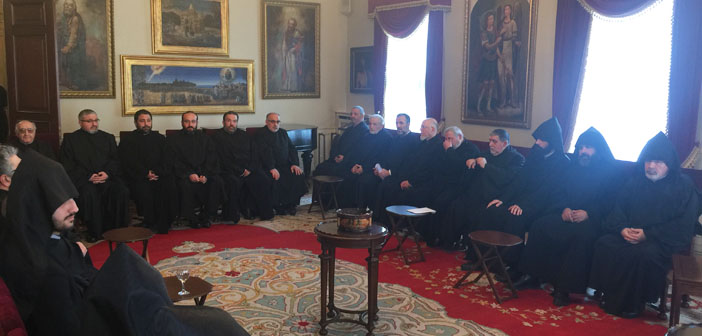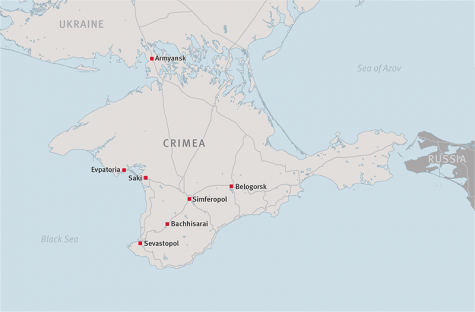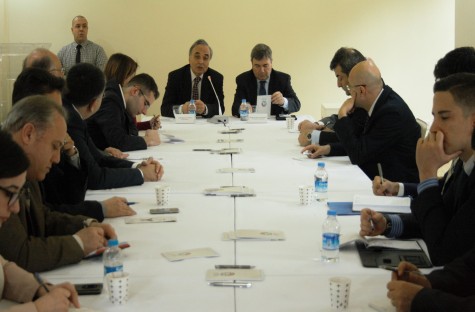Following the US, France is the country in which the Armenian Diaspora is the most active. The Armenians in France have influence in that country disproportional to their numbers (maximum 450.000).
In the 1990’s, just as in many other countries, the French Armenians also attempted to persuade the French Parliament to recognize the 1915 events as genocide, but this took time due to the bicameral system and Turkey’s initiatives to prevent such a recognition. Eventually, in January 2001, the French National Assembly adopted the following law, comprised of a very short sentence: “France recognizes publicly the Armenian Genocide of 1915”.
Therefore, for the first time, a country has recognized the Armenian genocide allegations with a law and not with a resolution of the Parliament. However, since this law is “declarative”, in other words, does not rule, but only states an idea on a subject, it has not been in conformity with the French Constitution. Since no one has carried this inconformity to the French Constitutional Court, the law has entered into force.
Shortly after, by putting forth that the law of 2001 does not prevent the denial of the Armenian “genocide” and considering the existence of a special law which penalizes those denying the Holocaust, the French Armenians have wanted a similar law to be adopted.
Despite Turkey’s objections and also the French Government’s opposition, a draft law, which foresees those denying the Armenian genocide allegations to be subjected to a punishment of both imprisonment and a fine, has been adopted on 12 October 2006.
For the draft to become a law, it also had to be ratified by the Senate. However, the Senate has not put the draft on their agenda for approximately for 4,5 years. The reasons for this could be expressed as follows: France is a country where freedom of expression is most widely observed. Although the French public opinion believes that an Armenian “genocide” took
place, some have found the imprisonment of those defending the opposite view as excessive. In the recent years, laws concerning historical events like colonialism and slave trade have been adopted in France. Apart from the “declarative” nature of these laws, some well known French historians have opposed them on the grounds that they prevent scientific freedom. Last of all, some French Senators, although few in numbers, have been concerned that this kind of law would harm relations with Turkey.
The parties in the French Assembly, a few times in a year, have the right to request the discussion of issues not having a place on the Assembly’s agenda. While the draft law of 2006 was not included in the Senate’s agenda for reasons mentioned above, the Socialist Party has used their right and has wanted the draft to be discussed on 4 May 2011. However, a few days before this, the Senate’s Commission on Laws has examined this draft to see if it is in conformity to the French Constitution and has decided unanimously that it is not. In the meeting of May 4th, first the report of the Commission on Laws has been discussed and has been accepted with 74 votes against 196. Therefore, the draft law of 2006 has become “unconstitutional” and its discussion has no longer been necessary.
There is no doubt that the rejection of the 2006 draft law has been a serious failure for the militant Armenians in France. By expressing that other laws exist which could be used against those denying the “genocide” and that a circular note would be published, the French Government has attempted to ease the disappointment of the Armenians. Although the content of this circular note is not yet known, since it will not be contradictory to the existing laws, it could be understood that from now on, by observing some conditions like not degrading the Armenian community in France or not expressing views which would be considered “racist”, it will be possible to oppose the Armenian genocide allegations.
© 2009-2025 Center for Eurasian Studies (AVİM) All Rights Reserved
DRAFT RESOLUTION ON “GENOCIDE” IN THE US SENATE
 OUTSIDE INTERVENTION TO THE ELECTION OF THE ARMENIAN PATRIARCH OF ISTANBUL CONTINUES
OUTSIDE INTERVENTION TO THE ELECTION OF THE ARMENIAN PATRIARCH OF ISTANBUL CONTINUES
 FRANCE AND THE ARMENIAN QUESTION
FRANCE AND THE ARMENIAN QUESTION
 REPORT SUMMARY: HUMAN RIGHTS WATCH REPORT RIGHTS IN RETREAT: ABUSES IN CRIMEA
REPORT SUMMARY: HUMAN RIGHTS WATCH REPORT RIGHTS IN RETREAT: ABUSES IN CRIMEA
 AVİM HELD A CONFERENCE ON “MONGOLIA’S POTENTIAL IN THE REGION, THE CURRENT SITUATION IN MONGOLIA PRIOR TO THE 11TH ASIA-EUROPE MEETING (ASEM) AND TURKISH-MONGOLIAN RELATIONS”
AVİM HELD A CONFERENCE ON “MONGOLIA’S POTENTIAL IN THE REGION, THE CURRENT SITUATION IN MONGOLIA PRIOR TO THE 11TH ASIA-EUROPE MEETING (ASEM) AND TURKISH-MONGOLIAN RELATIONS”




























